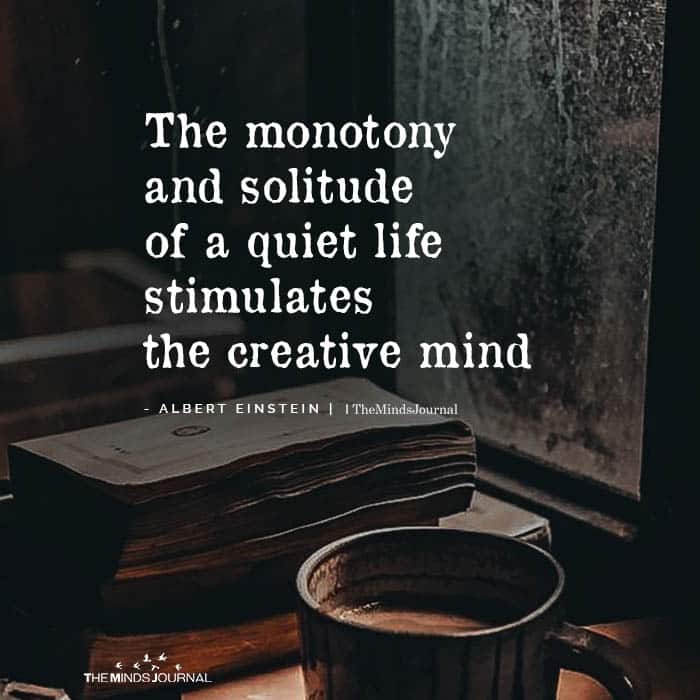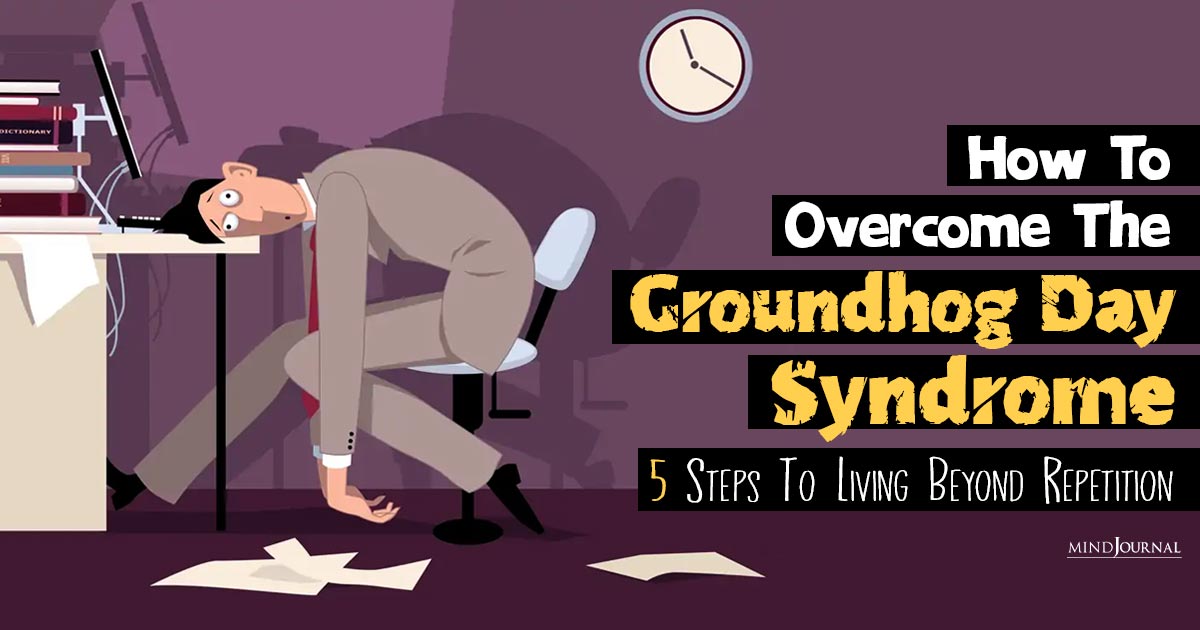Did you ever feel like you were caught up in a constant time loop where each day seemed similar to the previous one? Like the lead character in the popular Hollywood movie “Groundhog Day,” you may be experiencing a phenomenon known as Groundhog Day Syndrome.
This syndrome is characterized by monotony and repetition that causes stagnation, emptiness and unfulfilledness. Let us take a look at what is groundhog day syndrome, psychology of groundhog day syndrome and tips for dealing with groundhog day syndrome.
What is Groundhog Day Syndrome?
Groundhog Day Syndrome, also known as repetition compulsion, is considered as a psychological phenomenon where an individual experiences an overwhelming sense of monotony & boredom due to repetition in their daily life.
It was named after the popular movie Groundhog Day in which Bill Murry lived through the same repetitive day several times. Although our real-life experiences do not always seem to follow movies’ storylines, many of us can relate to being trapped in this cycle.
Related: Are You A Boring Person? 25 Signs You Put Everyone To Sleep With Your Boring Personality
The Psychology of Groundhog Day Syndrome
Let us dive deeper to get a clearer understanding of the psychology of groundhog day and how it affects us –
1. Habituation and the Comfort of Familiarity
One reason why we often feel trapped in a repetitive cycle is because familiarity appeals to us more than anything else. Our brains are designed for saving energy and effort reduction through automation of repetitive tasks.
However, people feel stuck when everything becomes predictable with no new events or experiences occurring around them on a daily basis.
2. Fear of Change and Uncertainty
Change is scary; hence, fear of uncertainty can easily make us settle for patterns. While we may be afraid of leaving our comfort zones, deep inside one can be desiring something different than their usual monotonous routine.
This fear often perpetuates Groundhog Day Syndrome and keeps us from pursuing personal growth.
3. Lack of Purpose and Meaning
When there is no purpose or fulfillment in our daily routines, it can easily turn into monotony. There are days when life seems less exciting without definite goals or direction; thus rendering existence boring and empty.
Related: 8 Mental Health Benefits Of Boredom, According To Studies
3 Signs of Groundhog Day Syndrome
To start breaking free from Groundhog Day Syndrome, one must first recognize its symptoms. Here are some of the signs to look out for:
1. Feeling of Restlessness and Boredom
If you are constantly searching for something more, feel restless or get bored a lot then it might be that you are living through a repetitive cycle.
2. Lack of Motivation and Productivity
When every day feels the same, we can become less motivated and unproductive under such conditions. Groundhog Day Syndrome can decrease enthusiasm at work, hobbies, and even in relationships.
3. Emotional Fatigue and Apathy
Groundhog Day Syndrome is characterized by emotional exhaustion, apathy, indifference due to monotony involved.
Tips for Dealing with Groundhog Day Syndrome
Here are helpful tips for breaking free from groundhog day syndrome
1. Embrace Novelty and New Experiences
One of the most effective ways of escaping boredom is incorporating novelty in your daily routine. Try out new things, explore different passions or visit unfamiliar places.
Embracing new experiences will not only bring excitement into your life but also promote personal growth thereby broadening your perspective as well.
2. Set Meaningful Goals
Setting goals gives us reasons for living each day. The most important thing is knowing exactly what you want from life and putting in the effort to accomplish those goals.
Divide these goals into smaller achievable steps; and don’t forget to appreciate yourself every time you succeed at any step. Achieving something important can give your life a purpose.
Related: How To Break Monotony In Life: 35 Hacks To Make Life More Thrilling
3. Cultivate Mindfulness and Gratitude
The practice of being present allows us to appreciate what is happening at that very moment, and see the beauty in little things. To make this happen, take time daily to reflect on things that you are appreciative of.
Participate in activities such as meditation, journaling or walking that encourage mindfulness. Such mindful practices can help you build a deeper connection with yourself and with your surroundings, helping you escape the Groundhog Day Syndrome.
4. Embrace Change and Take Calculated Risks
To manageGroundhog Day Syndrome, fear of change must be overcome. Start by taking small calculated risks in areas that seem to be stuck.
Whether it’s trying new hobbies or getting some creativity back into your life or even changing careers, opening up to changes leads to new opportunities and personal development. This is one of the best tips for dealing with groundhog day syndrome.
5. Seek Support and Connection
While the above strategies can be effective, overcoming Groundhog Day Syndrome can be difficult. This is why it is important to have a solid support system who can help you bring about the necessary changes.
Join a support group or reach out to friends, family members who have been through similar experiences. Learning from others who have also experienced and overcome such issues can serve as a motivation in your own journey.

Takeaway
While groundhog day syndrome can make life feel like an unfulfilling and repetitive loop, you don’t necessarily have to remain stuck in it.
By understanding the underlying psychology, seeking new experiences and overcoming your fear of change, you can build a better life for yourself full of endless and exciting possibilities.
Related: 25+ Fun Things To Do When You’re Bored At Home
Frequently Asked Questions (FAQs):
How do I stop feeling like Groundhog Day?
Do something different and set new goals so that you can gain a new perspective on life.
Why does life feel like Groundhog Day?
Life may feel like Groundhog Day due to routine, monotony, or lack of variety. Seek diversity and meaningful experiences.
What is a Groundhog Day situation?
A “Groundhog Day” situation means that one is caught up in repetitive routines or experiences which create a feeling of time-loop or stagnancy.










Leave a Reply